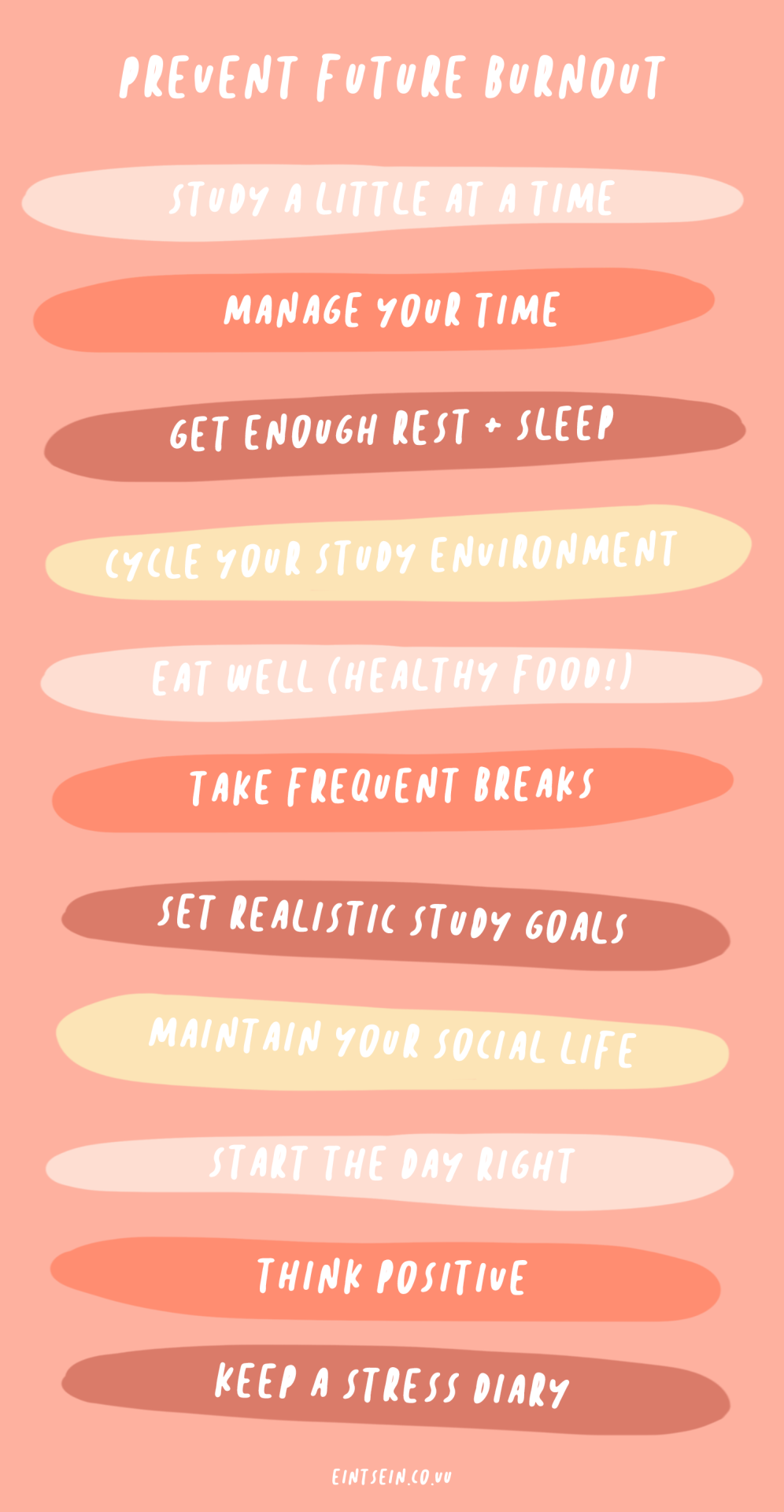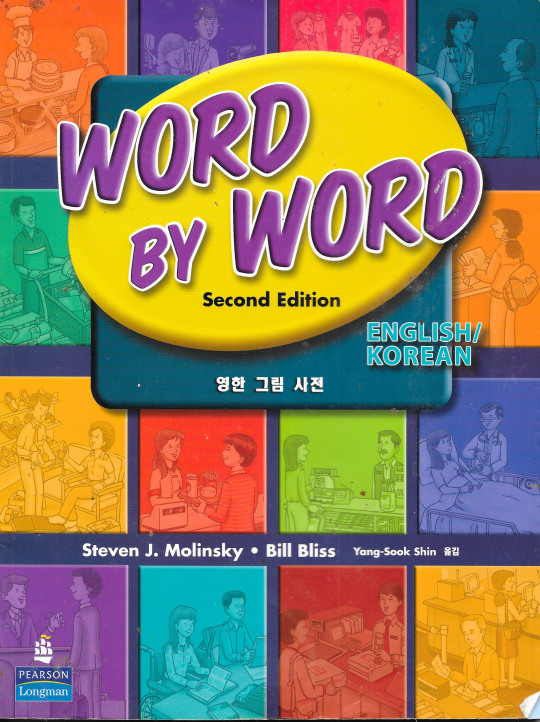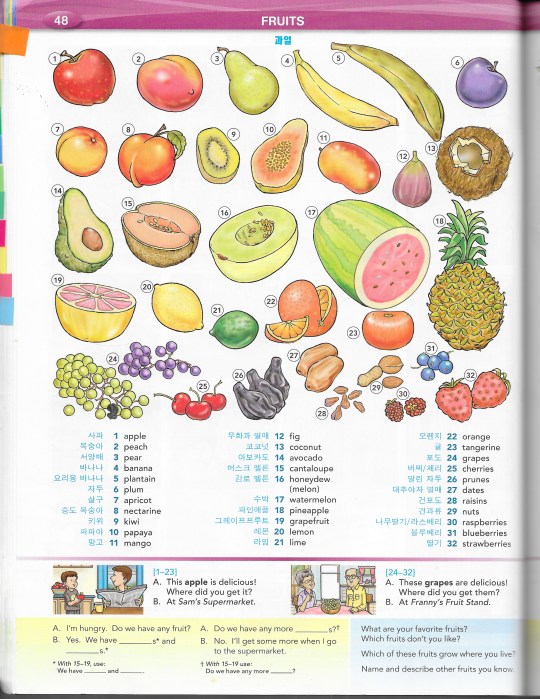Photo

note-taking methods
guide to 4 main note-taking methods
cornell notes
outline method
how to mind map
how to use flashcards
how to use flashcards #2
cause and effect diagrams
summary foldables
double column method
revision notes
make your own revision textbook
how to take notes from a textbook
how to take notes for different subjects
in-class note-taking
taking notes in class
taking notes in class #2
note-taking during and after class
digital notes
ipad note-taking
onenote note-taking
onenote note-taking #2
making notes pretty
colour-coding notes
easy ways to make pretty notes
guide to aesthetically pleasing notes
upgrading your notes
helpful tags (for inspiration)
all notes
digital notes
flashcards
mind maps
printables
more posts:
apps for your mental health
aliexpress stationery
four types of learners
staying productive during holidays
maths masterpost
bullet journal spread themes
what’s in my bag
4K notes
·
View notes
Text
How to Deal with Study Burnout

As students in this day and age, it’s quite common for us to juggle rigorous academic responsibilities and overwhelming extracurricular activities. As a result, we might feel burnt out. But what exactly is burnout?
Burnout is when you feel physically and mentally exhausted as a result of constantly lacking the energy required to fulfill the demands of your studying.
Burnout can be broken down into three parts:
Exhaustion is what causes you to feel tired all the time and unable to concentrate. You could also get sick or have trouble sleeping.
Cynicism or depersonalization is when you feel disconnected from those around you, e.g. your friends and family.
Inefficacy is a decrease in productivity, efficiency, or quality of your work.
How do you know if you have burnout?
Symptoms may vary, but they include:
Being unable to absorb new information
Intellectual exhaustion
Decreasing academic performance and productivity
Feeling like you need to prove yourself
Making yourself work even more, even though you’re exhausted or being unwilling to study further
Neglecting your needs
Long term fatigue
Showing disinterest in things you normally enjoy, e.g. hobbies or friends
Denying that something’s wrong with you (may manifest in the form of aggression)
Avoiding social interaction
Feeling empty and depressed
What can I do to fix it?
Here are some short term solutions for dealing with burnout.

1. Take a power nap Power naps are life changing. They help you recharge your energy and get you ready to start working again. They also improve learning, memory, creativity, alertness, and mood. I would recommend napping for 30 minutes at most, because anything more will lead to a longer sleep session.
Optional: drink coffee before your nap - something that takes a short while to consume like a shot of espresso - so that you’ll feel alert and revitalized afterwards!
2. Take a shower A cold one will wake you up, but a warm one will calm you down. I suggest starting with warm water, then ending with cold water.
3. Exercise Whether it’s playing soccer or doing yoga, the important thing is to get moving! Exercise releases endorphins or happy hormones that help you combat stress.
4. Run a quick errand This will help take your mind off things while also getting something done! You’ll also end up walking, which is technically a form of exercise.
5. Call or visit a friend Sometimes what we’re lacking is social interaction, and hanging out with a friend definitely helps. Whether it’s providing you with a distraction or giving emotional support, your friends are always there to help you. Plus, science has shown that being with friends reduces your cortisol (stress hormone) levels.
6. Eat a snack Preferably a healthy one. Eat something with proteins, vitamins, and fibers to boost your mood. Here’s a list of mood boosting foods.
7. Surf the web This requires A TON of discipline, but it’s definitely a game changer. Surfing the web is one of the most relaxing things you could do. I personally look for a good laugh during my study breaks, so I’d watch a comedy or scroll through memes to get those happy hormones up and running.
8. Do an activity you find interesting, e.g. a hobby We all need happiness in our lives, and our hobbies are perhaps the best way to find that joy. You could sit down with a page turning adventure, or go outside and shoot hoops, or listen to a podcast, or even bullet journal, as long as you’re having a good time.
9. Listen to music Music is one of the ways we gain energy, so I always make time for it during the day. However, you should choose the right music, because not all the music you love is going to make you feel energized. For me, it’s pop punk with hard hitting beats, thundering guitars, and really upbeat, enthusiastic vocals. Some of you might be energized by mellow music with dreamy vocals that make you feel like you’re floating in the clouds. If you choose the wrong music, you might just end up feeling sluggish and drained.
10. Get some fresh air Your brain needs 20% of the oxygen in your body. Fresh air brings more oxygen to your brain so that you can think more clearly, feel less tired, and concentrate more easily.
How do I make sure I don’t get it in the future?
Avoiding study burnout in the long term has a lot to do with our study habits - as well as our daily habits. We need to make sure that our bodies and minds receive the things they need, and that we aren’t overworking them.

1. Study a little at a time Break up your notes into smaller, more easily digestible pieces and learn a little at a time. This way, you’re not overwhelming your brain, and you have time to let that new knowledge settle in.
2. Time management Having a good study schedule is crucial in preventing burnout. You don’t want to force yourself to work at your slow hours. Aside from that, you definitely shouldn’t leave things until the last minute, and sticking to a schdule will help you pace yourself. Here’s a post I wrote on How to Make an Efficient Revision Schedule and How to Beat Procrastination.
3. Get enough rest I cannot stress enough that sleep is so important for you. It improves your cognitive functioning and also enhances your mood, making it less likely that you’ll get burnt out. Make sure to take power naps, too, if you feel like you need them.
You also really shouldn’t pull all-nighters. Sleep is also involved in cementing memories in your brain, so if you study a little before you sleep, you’re bound to remember more than if you studied a chapter during an all nighter.
Having trouble sleeping? Here’s a post I made about my night routine and how to get better sleep.
4. Cycle your study environments Your body and mind are bound to get tired from being in the same location for prolonged periods of time. The best way to fix that is to study in different places: at your desk, your backyard, the dining table, a cafe, a friend’s house, the library, etc.You should find a frequency that works for you. I like to switch it up every 2-3 days; some people change locations every week.
5. Eat well As I’ve mentioned before, healthy foods with protein, vitamins, and fiber greatly improve your mood and your physical health. Proper nutrition will give your brain the power it needs to push through. Also make sure not to skip meals; honestly you’ll just end up feeling terrible afterwards.
6. Take frequent breaks Let’s face it, we’re human, we’re bound to get tired from studying for a long time. Taking breaks enables our brains to digest the information we just learned in a pace that works for it. Breaks also help us focus on something other than studying, so that when we do get back to it, we’ll be ready to digest even more information.
7. Set realistic study goals You’re gonna memorize all 500 pages of your biology textbook in one day? Good luck with that. Some of you might be compulsive studiers, but this kind of habit isn’t very good for your brain or your physical health. Studies have shown that excess studying can lead to lower productivity, fatigue, and - you guessed it - burnout. In the end, this will result in lower academic performance, perhaps even in the long run. So instead of trying to study so much in one sitting or one day, break up your material into chunks.
8. Maintain your social life Wherever you lie on the introvert-extrovert spectrum, everyone needs social interaction once in a while. It keeps you sane and healthy. Go out with your friends, have a sleepover, or maybe even a study date.
9. Start the day right What we do in the morning can significantly affect our mood for the rest of the day. Sometimes we don’t even feel like getting up in the morning, or doing anything that day. One thing you should do is create a morning routine you enjoy to jumpstart your day. Here are 8 Morning Habits for Productivity.
10. Think positive When we’re feeling burnt out, it’s hard to not think negatively about everything. In reality, that just makes our condition worse. So think positively! Start small, like congratulating yourself for getting out of bed today, and then work your way up to bigger accomplishments, like finishing 2 chapters of your textbook.
11. Keep a stress diary This is kind of a new concept for me, but it’s really great. How it works is that each day, you would write down all the things that made you stressed and how they made you stressed. This will help you identify the things you’re doing that’s causing your burnout, e.g.
Too long study hours? take regular breaks
Too much time in the same place? cycle your study environment
Not eating properly? set aside time to eat healthy meals at least 2 times a day
Not doing the things you love? schedule in time for that, e.g. during your long breaks
Not getting enough human interaction? make a study group
Too much negative thinking? adopt a positive mindset (you can always start small)
Not getting enough sleep? fix your sleep schedule
And that’s all I have for you guys this time. Hope these tips will help you manage your stress and study burnout whenever you have them. And if you have any questions, don’t hesitate to drop an ask!
P.S. if any of you want to see the images in this post in better quality, click here (link to google drive)
29K notes
·
View notes
Photo

I believe in free education, one that’s available to everyone; no matter their race, gender, age, wealth, etc… This masterpost was created for every knowledge hungry individual out there. I hope it will serve you well. Enjoy!
FREE ONLINE COURSES (here are listed websites that provide huge variety of courses)
Alison
Coursera
FutureLearn
open2study
Khan Academy
edX
P2P U
Academic Earth
iversity
Stanford Online
MIT Open Courseware
Open Yale Courses
BBC Learning
OpenLearn
Carnegie Mellon University OLI
University of Reddit
Saylor
IDEAS, INSPIRATION & NEWS (websites which deliver educational content meant to entertain you and stimulate your brain)
TED
FORA
Big Think
99u
BBC Future
Seriously Amazing
How Stuff Works
Discovery News
National Geographic
Science News
Popular Science
IFLScience
YouTube Edu
NewScientist
DIY & HOW-TO’S (Don’t know how to do that? Want to learn how to do it yourself? Here are some great websites.)
wikiHow
Wonder How To
instructables
eHow
Howcast
MAKE
Do it yourself
FREE TEXTBOOKS & E-BOOKS
OpenStax CNX
Open Textbooks
Bookboon
Textbook Revolution
E-books Directory
FullBooks
Books Should Be Free
Classic Reader
Read Print
Project Gutenberg
AudioBooks For Free
LibriVox
Poem Hunter
Bartleby
MIT Classics
Many Books
Open Textbooks BCcampus
Open Textbook Library
WikiBooks
SCIENTIFIC ARTICLES & JOURNALS
Directory of Open Access Journals
Scitable
PLOS
Wiley Open Access
Springer Open
Oxford Open
Elsevier Open Access
ArXiv
Open Access Library
LEARN:
1. LANGUAGES
Duolingo
BBC Languages
Learn A Language
101languages
Memrise
Livemocha
Foreign Services Institute
My Languages
Surface Languages
Lingualia
OmniGlot
OpenCulture’s Language links
2. COMPUTER SCIENCE & PROGRAMMING
Codecademy
Programmr
GA Dash
CodeHS
w3schools
Code Avengers
Codelearn
The Code Player
Code School
Code.org
Programming Motherf*?$%#
Bento
Bucky’s room
WiBit
Learn Code the Hard Way
Mozilla Developer Network
Microsoft Virtual Academy
3. YOGA & MEDITATION
Learning Yoga
Learn Meditation
Yome
Free Meditation
Online Meditation
Do Yoga With Me
Yoga Learning Center
4. PHOTOGRAPHY & FILMMAKING
Exposure Guide
The Bastards Book of Photography
Cambridge in Color
Best Photo Lessons
Photography Course
Production Now
nyvs
Learn About Film
Film School Online
5. DRAWING & PAINTING
Enliighten
Ctrl+Paint
ArtGraphica
Google Cultural Institute
Drawspace
DragoArt
WetCanvas
6. INSTRUMENTS & MUSIC THEORY
Music Theory
Teoria
Music Theory Videos
Furmanczyk Academy of Music
Dave Conservatoire
Petrucci Music Library
Justin Guitar
Guitar Lessons
Piano Lessons
Zebra Keys
Play Bass Now
7. OTHER UNCATEGORIZED SKILLS
Investopedia
The Chess Website
Chesscademy
Chess.com
Spreeder
ReadSpeeder
First Aid for Free
First Aid Web
NHS Choices
Wolfram Demonstrations Project
Please feel free to add more learning focused websites.
*There are a lot more learning websites out there, but I picked the ones that are, as far as I’m aware, completely free and in my opinion the best/ most useful.
533K notes
·
View notes
Text
How I strategically plan my semester
AND GET SHIT DONE FOR REAL (part 1)
1. Study your syllabus.
In there you’ll get all the important information: books, assignments, scores, goals, due dates, deadline, you even get a planner. You can’t overlook any of this. Nowadays most syllabi are full of crap, they have more pages than they did a couple of years back, yet students are still confused or don’t even use it. These are the things I look for in the syllabus:
Books. Yeah, you get a list at the beginning of the semester but some courses have readers or make use of articles as materials too. Which you are likely required to download or print yourself. I like to be 101% prepared and that means getting all my reading materials. I download all my books, readers and articles and organize them right away on Google Drive so I don’t have to look for them at the last minute.
Learning objectives. My syllabi have a section dedicated to the objectives of the course. This is a lifehack by Shirou, folks. So listen carefully. If the syllabus says “create a marketing communication plan based on the marketing policy”, YOU 👏 WILL 👏 GET 👏 THAT 👏 SHIT 👏 IN 👏 YOUR 👏 TEST. 👏 NO 👏 ARGUING. You better start looking at what a marketing communication plan consists of. So write the objectives down in your notebook, in a document, somewhere you’re sure to look, so when the professor starts explaining that objective, you’ll paying 200% of your attention. I like to write them down with checkboxes. That way, if I see we’re getting close to exam week and the professor still hasn’t explained that objective, I’ll take the opportunity to ask and not lose any time. The entire course is likely to go around these objectives. So if you understand them, and can explain them, then you’re likely to pass that course. It has worked for me these past 2 years.
Test. What kind of test will I get? Is it a written test, digital, presentation, essay? A combination of these? If it’s written or digital, you know it’ll most likely be individual. If it’s a presentation or essay, chances are high it’s in a group. I have the most difficulty with group works. They give me a hell of a time and I want nothing more than to avoid them. So I take this opportunity to see how hard I will have to work for the subject. And of course, if there are multiple exams within a course, I take a look at the percentage of each one of them so I get to prioritize the most important examination. If I have a presentation that counts for 20% and I have to write a report that counts for 80%, I’ll work my ass off to get a perfect score for that report. Ultimately, that’s what’s going to raise my score faster. So it will be downright stupid to do a mediocre work on the report, hoping the presentation will raise my final score.
Take a good look at the planning. Are there any due dates or deadlines for things you have to deliver before midterms or exam week? Highlight those! In my first semester, I overlooked those in between due dates where your professor gives you feedback. Bad decision, people. I could have had a higher score if I had delivered things as planned and get feedback. But nope. 😥
In the second part, I’ll explain how I make a personal study plan based on the planner you get in the syllabus, and I’ll share my tips on how I stay on track with the planning.
3K notes
·
View notes
Text
fr | shopping
quizlet link

【 actions 】
acheter en vrac | to buy in bulk
aligner | to line up
être fauché(e) | to be broke / penniless
faire du shopping | to shop
faire les courses | to go shopping
payer en espèces | to pay in cash
rembourser | to refund
voler | to steal
voler à l’étalage | to shoplift
【 deals 】
l’affaire (f) | bargain
en promotion | on offer
en solde | on sale
en vente | for sale
le prix soldé (m) | sale price
la remise (f) | discount
【 on doors 】
fermé | closed
ouvert | open
poussez | push
tirez | pull
【 extra 】
l’argent (m) | money
l’article (m) | item
la caisse (f) | checkout, cash register
la carte de crédit (f) | credit card
le centre commercial (m) | shopping centre
le chariot (m) | shopping trolley / shopping cart
le/la commerçant(e) | shopkeeper
le distributeur (m) | ATM
l’entreprise (m) | business
la fraude (f) | fraud
le/la gérant(e) | manager
le libre-service (m) | self-service
la monnaie (f) | change (coins)
le panier (m) | shopping basket
la porte automatique (f) | automatic door
le porte-monnaie (m) | coin purse
le portefeuille (m) | wallet
le reçu (m) | receipt (also le ticket de caisse)
la salle d’essayage (f) | fitting room
la taxe de vente (f) | sales tax
la transaction (f) | transaction
le vendeur / la vendeuse | sales assistant
le vigile (m) | security guard
377 notes
·
View notes
Text
The only way to start speaking a language is to start speaking it badly
93K notes
·
View notes
Text
types of study breaks for every situation
if you realize you’ve been studying for hours: grab a snack to refuel your body and watch a sitcom to refuel your brain. then back to the books.
if you’re feeling stressed out: take some deep breaths, text your friends, maybe stare at a wall for a few minutes. gather yourself.
if you can’t seem to focus: get moving and get outside. take out the garbage, check your mail box, maybe walk your dog. just get moving and get fresh air. it’ll help bring you back.
if there’s something else going on in your life and you can’t get it off your mind: write down what’s going through your head, sort of like a diary entry. it’ll help you work things out.
if you’re just mentally and physically exhausted: set a timer for 25-30 minutes and take a nap. any longer and you’ll hit REM and you’ll wake up feeling just as tired. once you wake up, get some caffeine in you.
if the material is boring as hell: find another way to study. see if there’s a crash course video online about it or draw out what you’re trying to learn in diagrams and pictures to make it fun.
if people around you won’t shut up: listen to some music. soundtrack and classical music is always good because they won’t absorb you as much as music with lyrics. white noise (like ocean waves, rain sounds, etc.) also works.
if you only half understand a concept: call/message a friend who’s not in the class and try to teach the material to them. this will help you mentally work through the material and will help you remember it as well.
93K notes
·
View notes
Photo




So earlier today in the beginners study group I talked about a vocab book I used a lot when I first started studying. It is Word by Word, a Korean-English picture dictionary targeted for younger Korean kids.
It has a lot of pretty thorough sections on a load of everyday subjects that people seemed interested in, so I thought I’d be helpful to share.
Google drive file can be found right here~
237 notes
·
View notes
Text
things to say to your loved ones & significant others in korean

greetings:
안녕 내 사랑 (annyeong nae sarang) - hi my love 여보 (yeobo) - honey
phrases to use every day:
보고 싶어 (bogo sipeo) - i miss you/ i want to see you 미소가 정말 그리워 (misoga jeongmal geuliwo) - i really miss your smile 사랑해 (saranghae) - i love you 진심으로 사랑해 (jinsimeulo saranghae) - i love you with my whole heart 말로 표현할 수 없을 만큼 사랑해 (mallo pyohyeonhal su eopseul mankeum saranghae) - i love you more than words can say 당신을 많이 사랑해요 (dangsineul manhi saranghaeyo) - i love you a lot 안아주고 싶어 (anajugo sipeo) - i want to hug you 안아 줘 (ana jwo) - give me a hug 뽀뽀해 줘 (ppoppohae jwo) - kiss me please
things you can say more often:
예쁘네요 (yeppeuneyo) - you are pretty 귀여워요 (gwiyeowoyo) - you are cute 당신은 대단해요 (dangsineun daedanhaeyo) - you are amazing 멋지시네요 (meotj shineyo) - you look great 당신은 웃을때 잘생겼어요 (dangsineun useulttae jalsaenggyeosseoyo) - you are handsome when you smile 님은 제게 영감을 주시는 분이세요 (nimeun jege yeonggameul jusineun buniseyo) - you are my inspiration 나는 당신이 자랑스러워요 (naneun dangsini jarangseuleowoyo) - i am proud of you 제가 팬인게 정말 자랑스러워요 (jega paeninge jeongmal jalangseuleowoyo) - i am so proud to be your fan
make sure they are okay:
별일 없지? (byeolil eobji) - is everything alright? 힘내세요! (himnaeseyo) - cheer up! 푹 쉬세요 (pug swiseyo) - rest well 잘 먹어요 (jal meogeoyo) - eat well 너 아직 먹었 니? (neo ajig meog-eo ni) - have you eaten yet? 감기 조심해요 (gamgi josimhaeyo) - be careful of the cold 무리해서 일하지 마 (mulihaeseo ilhaji ma) - don’t overwork yourself 건강하게 계세요 (geonganghage gyeseyo) - stay healthy 제발 스스로 돌봐 (jebal seuseulo dolbwa) - please take care of yourself
phrases to remember:
너랑 더 오래 같이 있고 싶어 (neorang deo olae gati issgo sipeo) - i would like to spend more time with you 난 항상 응원 할게요 (nan hangsang eungwon halgeyo) - i will always cheer for you/ support you 오빠/언니 힘내세요 우리가 있자나요 (oppa/unnie himnaeseyo uriga issjanayo) - oppa/ unnie cheer up, we are by your side 항상 행복하세요 (hangsang haengboghaseyo) - always be happy 실수해도 괜찮아요 (silsuhaedo gwaenchanhayo) - it’s okay if you make a mistake 울지 마세요 (ulji maseyo) - please don’t cry 점점 나아질거야 (jeomjeom naajilgeoya) - it will get better 지금은 힘들어도 지나고 보면 아무것도 아닐거야 (jigeumeun himdeuleodo jinago bomyeon amugeosdo anilgeoya) - although it is tough now, it will be nothing once you’ve done it 너는 네 어두운 세상에 빛이에요 (neoneun ne eoduun sesange bichieyo) - you are the light in my dark world
내게 있어 당신은 온 세상을 의미해요!! (naege isseo dangsineun on sesangeul uimihaeyo) - you mean the world to me!!
12K notes
·
View notes
Text
Masterlist
╭─━━━━━━━━━━━━─╮
Basic - 기본 ♡ Hangul - 한글 (한국어 알파벳) ♡ Korean Numbers - 한국어 번호 ♡ Calendar - 달력
╰─━━━━━━━━━━━━─╯
╭─━━━━━━━━━━━━─╮
Vocab - 어휘 ♡ Christmas - 크리스마스 ♡ New Year - 새해 ♡ Grocery Shopping - 식료품 쇼핑 ♡ Korean Onomatopoeia - 한국어 의성어 ♡ Clothes - 옷 ♡ Animals - 동물들 ♡ Idol Phrases - 관용구 ♡ Fruit - 과일 ♡ Veggies - 채소 ♡ Spring - 봄 ♡ Body - 몸 ♡ Family - 가족 ♡ Korean Slang / Shortened Expressions ♡ LGBT+ Vocab - 엘지비티 ♡ Korean Homonyms - 한국어 이의어
╰─━━━━━━━━━━━━─╯
╭─━━━━━━━━━━━━─╮
Korean Culture - 한국 문화 ♡ Korean Age - 한국 나이 ♡ 안녕하세요 vs 여보세요 ♡ Shoulders in Korea ♡ Batchim - 받침
╰─━━━━━━━━━━━━─╯
╭─━━━━━━━━━━━━─╮
Grammar - 문법 ♡ Conjugation - 동사 ♡ Particles - 문법적 입자 ♡ Counters - 복수형
╰─━━━━━━━━━━━━─╯
╭─━━━━━━━━━━━━─╮
Helpful Asks - 질문들 ♡ FAQ ♡ 이다 Conjugation ♡ “Is this right?” Korean Translation ♡ “How are you?” Korean Translation ♡ 이에요 / 입니다 Uses and Rules ♡ 행복하다 - meaning ♡ 난 네 블로그를 사랑해 - I love your blog ♡ Why did he say 언니?? ♡ Korean Spacing ♡ Am I a Koreaboo? ♡ Why is it -서 instead of -고? ♡ Korean Texting Abbreviations ♡ Sentence Structure How To: ♡ Staying Motivated / Focused ♡ Study Grammar! ♡ Improve Handwriting ♡ Improve Pronunciation ♡ Not Struggle with Hangul Recommended: ♡ Textbooks ♡ Apps ♡ Websites ♡ Tips for Beginners ♡ Webtoons
╰─━━━━━━━━━━━━─╯
╭─━━━━━━━━━━━━─╮
About Me ♡ Introduction - 자기 소개 ♡ 깜작이야 vs 감자탕 ♡ How I got my Korean Name ♡ My Study Routine ♡ My Face ♡ SK101 IG & TWITTER
╰─━━━━━━━━━━━━─╯
╭─━━━━━━━━━━━━─╮
Reading Comprehension ♡ Little Red Riding Hood - 빨간 모자 Part 1 || Part 2 || Part 3 || Part 4 ♡ Diary - 일기 Part 1 || Part 2
╰─━━━━━━━━━━━━─╯
under construction constantly
13K notes
·
View notes
Photo




I’m making notes faster than I’m learning them - trying to catch up.
IG: therobotstudies
522 notes
·
View notes
Photo

General Reference
Korean Wiki Project
Korean Language Wiki article
Korean Language Overview
Origin of Writing in Korea
Dictionaries
Naver dictionary
Daum dictionary
zKorean dictionary
Multimedia dictionary
Korean grammar dictionary
Hangul
All about Hangul
Learn to read Hangul in 15 mins
Hangul pronunciation
Hanja
Daum Hanja Dictionary
The Floating Lantern
Everyday Hanja
New Hanja
Typing Korean
How to Change Keyboard Language
Typing Tutor
Typing test
Typing game for kids
Korean Fonts
Flashcards
Download Anki
Download Korean Decks
Grammar
Korean Verb Conjugator
Websites
Talk To Me In Korean & HaruKorean
KoreanClass101
How to Study Korean
Learn Korean
Sogang Korean Program
L-Lingo
Books
My Korean Store
Korean Language Textbooks
Korean Fiction
Textbook reviews
Recommended Study Materials
Free Textbooks
Korean Language Learning Pack
My Korean 1 & My Korean 2
Learn Korean From Zero
Basic Korean: A Grammar and Workbook
The Korean Language: Structure, Use and Context
Harry Potter series
Blogs
Korean Language Blog
Hangukdrama & Korean
Korean Notebook
Korean Vitamin
Youtube Channels
talktomeinkorean
dailykoreanwords
seoulistic
sweetandtasty
fluentkorean
seemile
Let’s Speak Korean
KUlture TV
Podcast
SeoulPodcast
KoreanClass101
Korean radio stations
Twitter
KoreanHelp
KoreanLanguage
zKorean
Games
GenkiKorean
Number and vocab games
Korean word game
Vocabulary quizzes
Social
Lang-8
Hanlingo
TT4YOU
SharedTalk
Hi! Penpal!
Reading
Korea Times
Naver webcomics
Naver web novels
Raw manhwa scans
Chosun Kids
Junior Naver Donghwa
There are more resources available here, but if you know of any other useful sites or books, please let me know!
23K notes
·
View notes
Photo

schatten shadow / licht light
schwarz black / weiß white
leicht light / schwer heavy
alt old / neu new
stark strong / schwach weak
heiß hot / kalt cold
reich rich / arm poor
lang long / kurz short
teuer expensive / billig cheap
langweilig boring / Interessant interesting
dunkel dark / hell light
trocken dry / naß wet
schnell fast / langsam slow
hoch high / niedrig low
faul lazy / fleißig diligent
lustig funny / traurig sad
197 notes
·
View notes
Photo

this post is meant to be a directory of every resource I come across for Korean. it will be a continuous work in progress so thank you for your patience! if you have any issues or things to add, please reply to this post!
info
common errors made by learners by @studiousbees
learning profile
overview of the history of korean
overview of korean dialects
playlist of samples
tips for beginners by @hannah-dulset
wikipedia
Afficher davantage
789 notes
·
View notes
Text
Reblog this if you’re 100% okay with native speakers of your target language messaging you to practice
1K notes
·
View notes
Text
Ten synonyms for 'essen'
Why say ‘to eat’ when you can say ‘to devour’, 'to wolf down’, or 'to dine’?
1. Auffressen - to devour (normally of animals) Ex: Gestern hat ein Vogel das ganze Vogelfutter aufgefressen. Tr: Yesterday a bird devoured all of the bird food.
2. Speisen - to dine Ex: Hier speisen viele Beamte, Richter und Ärzte. Tr: Many lawyers, judges and doctors dine here.
3. Tafeln - to dine (elevated) Ex: Am liebsten tafeln wir im schönen Garten der Villa. Tr: Most of all, we prefer to dine in the villa’s beautiful garden.
4. Naschen - to nibble Ex: Viele Kinder naschen gerne Zucker, wenn er auf dem Tisch steht. Tr: Many children happily nibble sweets if they’re lying on the table.
5. Sich [dat.] einverleiben - to swallow up Ex: Jetzt könnte ich mir ganz alleine eine Riesenpizza einverleiben. Tr: Right now I could swallow up a whole large pizza by myself.
6. Schmausen - to feast (outdated) Ex: Die beiden Helden und ihre gallischen Freunde schmausen, trinken, schwadronieren und feiern. Tr: The two heroes and their Gallic friends feasting, drinking, ranting, and partying.
7. Verputzen - to scoff [down in one go] (slang) Ex: Saskia hat die ganze Torte verputzt. Tr: Saskia scoffed down the entire torte.
8. Verschlingen - to wolf up Ex: Sofort fängt sie an, ihren Kuchen zu verschlingen. Tr: Straight away she began to wolf up her cake.
9. Schwelgen - to indulge in Ex: Wir können täglich in Bananen, Apfelsinen und anderen tropischen Früchten schwelgen. Tr: On a daily basis we can indulge in bananas, apples, and other tropical fruits.
10. __en Hunger stillen - to satisfy one’s hunger Ex: In der Pause können sie ihren Hunger stillen. Tr: During the break they can satisfy their hunger.
Alright enjoy pals <3
569 notes
·
View notes
Text
study tips from someone who has already been there
here are a few things i’ve learned along the way. in case you’re asking for credentials, i have an honours bachelors of arts in sociology with a concentration in criminology and am currently in the last year of my second degree in public health. these are some of the most important things i’ve retained over the years in terms of studying/finals/midterms/etc.
start studying early: when i say early, i don’t mean like 2 days before the test. i mean like at least a week before the test. even better, look over your notes after each class for a little bit to get a grasp of what was said.
go to review sessions: if your TA or professor holds them. they usually give away some valuable tidbits about the exam and go over all of the relevant content that you should know.
actually do the readings: it’s a lot easier to do them during the semester than it is the night before the exam. so keep up with them.
use online tools: my favourite for studying is . it works wonders when you have a class that’s heavy in memorization. i usually add all of my terms in and them print out tests to practice. i do this multiple times.
invest in a whiteboard: yes. such a simple tool but oh so effective. whiteboards help you to visualize what is in front of you. mind maps on paper are great but on a whiteboard, even better.
use your friends for help: engage in study groups. believe it or not, there are some people out there who know more about a particular topic than you do. this is effective when you hate the class.
prioritize: try and figure out where you should be devoting the majority of your brain power. coordinate lecture notes with readings and see which content overlaps. this = goldmine.
use office hours: professors do so much more than just stand in front of the class and teach. can’t tell you how many times i’ve gone and sat with my professors and just chatted about what was going on. build rapport. this also helps later on with grad school letters or references.
go to class: just do it.
1K notes
·
View notes